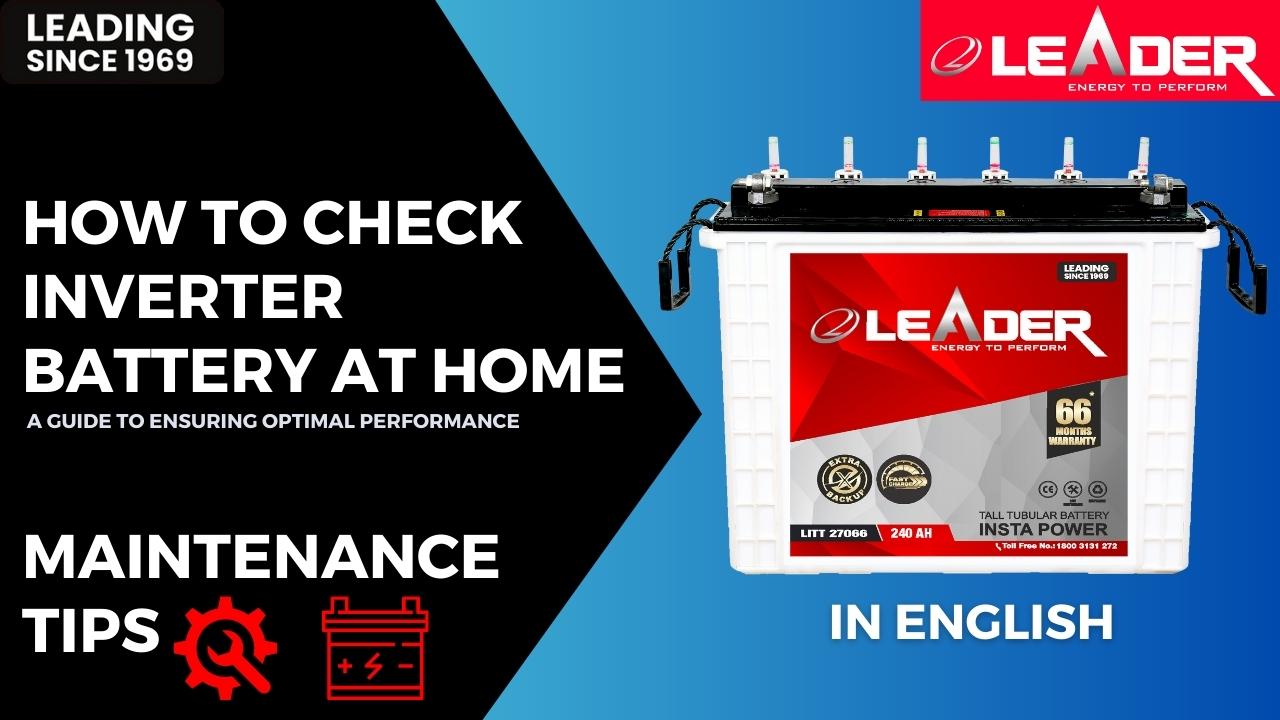Introduction:
Inverter batteries play a vital role in providing backup power during electrical outages, making them an essential component of any modern household or commercial establishment. To ensure their longevity and optimal performance, proper maintenance is crucial. In this blog post, we will delve into the world of inverter battery maintenance and provide you with practical tips to keep your batteries in top condition.
Regular Inspection and Cleaning:
Regular inspection is the first step towards maintaining your inverter battery. Check for any visible signs of damage, such as corrosion or leakage, and ensure that the battery terminals are clean and free from dust or grime. Cleaning the terminals with a mixture of baking soda and water helps remove any accumulated dirt and prevents corrosion.
Proper Ventilation:
Inverter batteries generate heat during the charging and discharging process. Adequate ventilation is crucial to dissipate this heat and prevent overheating, which can adversely affect battery performance. Make sure the battery is placed in a well-ventilated area, away from direct sunlight or any heat-emitting sources.
Regular Charging:
Frequent power cuts or long periods of inactivity can lead to battery discharge. It is essential to charge your inverter battery regularly to maintain its charge level and prevent deep discharging. Follow the manufacturer’s recommendations regarding charging intervals and duration. Additionally, avoid overcharging the battery, as it can lead to electrolyte loss and damage the battery plates.
Distilled Water Topping-up:
Many inverter batteries, especially lead-acid batteries, require periodic water topping-up. Check the water level in each cell of the battery and add distilled water if needed. Remember to use only distilled water, as tap water may contain impurities that can affect the battery’s performance. It is advisable to check the water level every 2-3 months and top-up as necessary.
Avoid Overloading:
Inverter batteries have a specified capacity, and exceeding this limit can cause strain and reduce their lifespan. Ensure that the load connected to the inverter does not exceed its capacity. Consider distributing the load across multiple batteries if required, to prevent overloading and optimize battery performance.
Temperature Control:
Extreme temperatures can significantly impact battery life. High temperatures accelerate the chemical reactions within the battery, leading to faster degradation, while extremely low temperatures reduce the battery’s capacity. Whenever possible, keep the battery in a temperature-controlled environment to ensure optimal performance and longevity.
Periodic Equalization:
Equalization is a process used to maintain the health of lead-acid batteries. It involves overcharging the battery for a specific period to promote uniform electrolyte distribution and remove sulfation on the battery plates. Consult the battery manufacturer’s guidelines or a professional technician to perform this process correctly, as improper equalization can harm the battery.
Timely Replacement:
Despite proper maintenance, every battery has a limited lifespan. It is crucial to keep track of the battery’s age and performance. Most inverter batteries last between 3 to 5 years, depending on usage and maintenance. If you notice a significant decline in battery performance or increased frequency of power cuts, consider replacing the battery to ensure uninterrupted power supply.
Conclusion:
Maintaining your inverter battery is essential to guarantee its optimal performance and longevity. By following these maintenance tips, you can extend the life of your battery and ensure it is always ready to provide backup power when you need it the most. Remember, regular inspection, proper ventilation, charging, distilled water topping-up, load management, temperature control, periodic equalization, and timely replacement are key factors in keeping your inverter battery in excellent condition. Prioritize battery maintenance, and you can rely on your backup power system to support you during electrical outages effectively.

